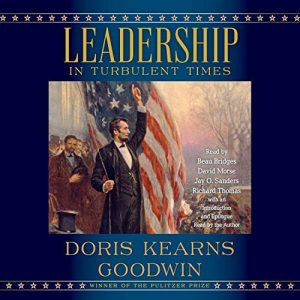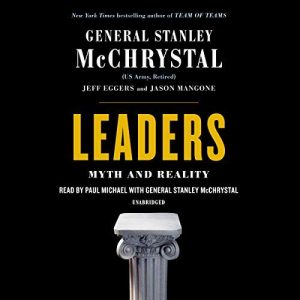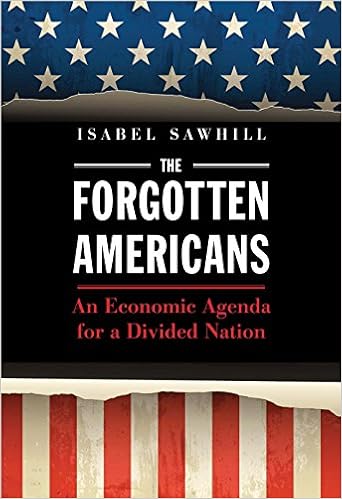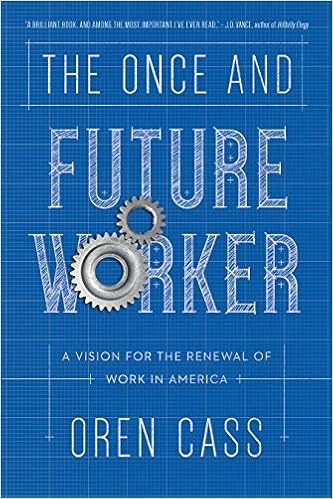These are the best of times
Unemployment is near historical lows, while median income is pushing historical highs. Our air and water are cleaner than any time in living memory. Cancer rates have been dropping for three decades. Crime is down in the same period. Gun violence is down. Even the poor have access to wonderful technologies that the world’s richest people could not have a generation past.
Is everybody happy yet?
Well … no. Despite all this wonderful news, people are dissatisfied and angry. We can dismiss some of this to simple ignorance. Not everybody knows about the low unemployment rates, and most people you ask probably think problems like cancer are on the rise. But it goes well beyond that, because despite the gains in material well-being, many Americans have lost something very valuable. They have lost their places in communities.
The third sector
I went to see Raghuram Rajan talk about his new book, “The Third Pillar: How Markets and the State Leave the Community Behind” (Penguin Press, 2019). I finished the audio-book version during my drives down to the tree farms, so I was primed and interested. In fact, I was primed way before. When I studied for my MBA at University of Minnesota, they had a whole department called “business, government and society” to talk about the interactions. Supporting civil society – the third sector – was a big program goal in my work in post-communist Poland. In Krakow, we sponsored a series of talks called “Habits of the Heart,” explaining that democracy was a lot more than just voting. Civil society, community and habits were like the lubricants in an engine. W/o this, the whole machine would sputter to a halt. One reason I am troubled by apparent decline of community in America is that I believe what we told our Polish friends.
Not new but worth repeating with new variations
What Dr. Rajan said was not new, but I think it needs to be restated. He talked about the three big components of society – the state, the market & community. Of course, you could argue for more divisions, but you must keep it manageable. Each of these sectors complements and balances the others. Government makes rules and exercises power. It needs to be balanced by the power of the market, which is balanced by government and both are balanced and complemented by community.
The book went into a lot of history about how each developed. Suffice it to say that community has been ceding power & responsibility to government and the market. This was not always or even usually bad. Community can be great, nurturing and enabling, but it can also be stifling in excluding. The balance from the government and markets was a good thing. Government could reach in and protect oppressed. Markets could give opportunities to go beyond what your parents had or did.
In recent decades, however, community has been atrophying more than is healthy, as both government and the market usurp its functions. Big government and big business are sometimes rivals, but often collaborators. When one gets big, the other does too. What gets squeezed is community. The small and the local are run over by the big and the national. This is Walmart pushing out small hardware stores, or Federal programs displacing local charities. Large banks absorb community bankers.
Why is small & local better?
The answer is that they not always are better. Most goods and services can be better provided by larger or more centrally organized enterprises. Walmart pushes out local stores because it can provide better products at lower prices. Sometimes it is less “fair” than offering lower prices or better services. Regulations like Dodd-Frank helped big banks knock out community banks, since the big guys could more efficiently cope with regulations and reporting requirements. A community banker might base a loan decision on subjective local knowledge and relationship. A report that justifies an action with, “Because I knew the situation” does not do well with Federal regulators.
Small and local has advantages in that it is often more attuned to local nuances. But the biggest advantages might be less evident and paradoxical. The small & local is often less efficient and it might be better for society in the long run precisely because of this fault. It gives more people a “valuable place” and makes our societal interface more human. I know this is intangible and maybe even illogical, but it is human.
I prefer to drink beer that is locally produced – or at least has a local story – even though I cannot tell the taste difference and the local brew often costs more than something more mass produced. I also prefer to drink at a restaurant or brew-pub, even though for a fraction of the cost I can buy a similar quality brew to drink at home. I am celebrating inefficiency, or maybe trading efficiency for community, perceived or real.
Maybe we have become efficient enough
We have largely escaped the poverty trap that ensnared ever generation of humanity until only a few generations ago. We have so much more stuff than they had, but we have lost some of the community that enriched their lives. We are richer in things and poorer in spirit. Can’t we choose to have both more stuff and robust community?
We can all listen to Taylor Swift
We all want to best we can get. It used to be that the best was just okay, to be less charitable we used to be content with mediocrity.
Rajan cites the examples of Elizabeth Billington and Taylor Swift. Elizabeth Billington was the most celebrated singer of her age, the early 19th Century. She made the big bucks, or the prime pounds, since she earned her money in Britain. In 1801, she earned the princely sum of £15,000. This was about $1 million in today’s dollars. Big money. Taylor Swift earns more. She grossed $250 million on a single tour a couple years ago. Does Taylor Swift sing more than 250 times better than Billington?
The difference is technology. Billington could reach only a few hundred people for each performance and she had to show personally in order to be heard. This meant that her fan base was limited by her reach. Only a very small number of people actually heard Billington sing. Most Americans, even those who are not fans, have heard Taylor Swift. She can make money from people how have never shared a concert hall with her and supported by video and amplification she can reach a lot more people per venue.
Superstars displace the ordinary. There used to be a much bigger market for people of medium talent and attractiveness. People are less likely today to pay extra for someone singing one of Taylor Swift’s songs, when for less cash they can listen to a recording of Swift herself.
Superstar hogging = inequality
Superstars hog the work of thousands, maybe millions, and they are compensated vastly for this. They effectively duplicate themselves millions of times, putting no additional time or effort into each rendition after the first. This is the root of inequality.
It gets worse. Superstars also hog the gigs outside their own field of expertise. I heard Oprah narrating a nature show, got information about credit cards from Alec Baldwin and Jenifer Aniston told me what water to drink.
he superstars hollow out the middle. People who are very talented and well-known but not the very top find themselves out of work. It doesn’t do much good to be in the top-hundred or even the top ten. It is much like the Olympics. We know the winner of the gold, might pay some attention to silver, treat the bronze as a bit player and have no idea about anybody below that.
The center cannot hold (a job)
This superstar hogging is not limited to celebrities. They are just easier to see. The same goes for CEOs, investors and even skilled workers. Anything where tech expands reach.
Rajan mentioned accounting. We no longer hire ordinary guys to do our taxes, since Turbo Tax or other programs “know” all the routine things. Superstar accountants do better than ever, and the guys who move paper are still there. The places in the middle are gone.
Inequality affects community, but in a round about way. Inequality does not cause the breakdown of mixed communities, but rather what causes inequality also breaks down mixed community.
Rajan places a lot of the motivation to create communities of like-minded people on the quality of schools. Parents want the best schools possible for their kids because they know that little differences in kind will produce big differences in outcomes, as above. What is important in school is NOT how much money is spent or the quality of teaching, although both these things go with good schools. The key factor are the students themselves and their parents. Kids are trained, socialized and motivated by their peers. Not only are you judged by the company you keep, you are also shaped by your friends. Parents are pushing this for their kids.
I was waiting to hear about possible solution to the dilemma of community. There was no “silver bullet” in this case. Community is about relationships and relationships take effort to build and sustain. So, the solutions are that it takes work and constant attention. We need to encourage civil society and community when the opportunity arises. This is not satisfying.
In the book, where Rajan has more space to expound than he did in a short talk, he talks about inclusive localism and dispersing authority to lower levels. I do not recall him using the term subsidiarity (might have missed it) but that is clearly what he is talking about. I kept on thinking that he was reinventing the ideal of Tocqueville’s America. We have a lot to work with. Our land grant universities did a great job of elevating American. Our community colleges today can help in that role. It might be good to have some sort of national service. That is a great equalizer. America adapted before and we will again. That is vague, but I do think it is true.
The third pillar: ‘Inclusive localism’ as the key to rebuilding American communities – AEI2






 The first speaker was Isabel Sawhill discussing her book “
The first speaker was Isabel Sawhill discussing her book “ Oren Cass who wrote “
Oren Cass who wrote “![The Challenge for Business and Society: From Risk to Reward by [Litow, Stanley S.]](https://images-na.ssl-images-amazon.com/images/I/51BkidnUQmL.jpg)
